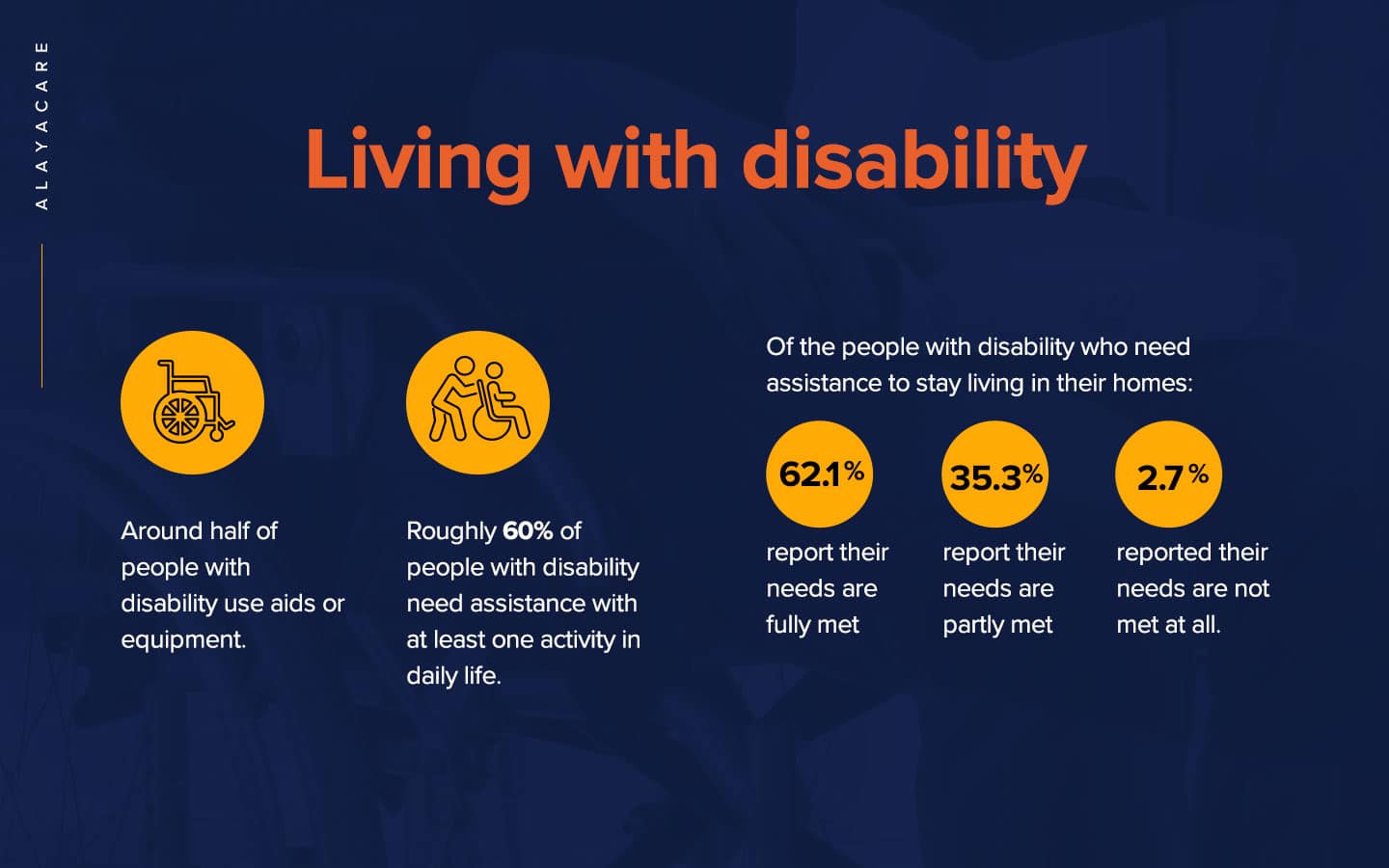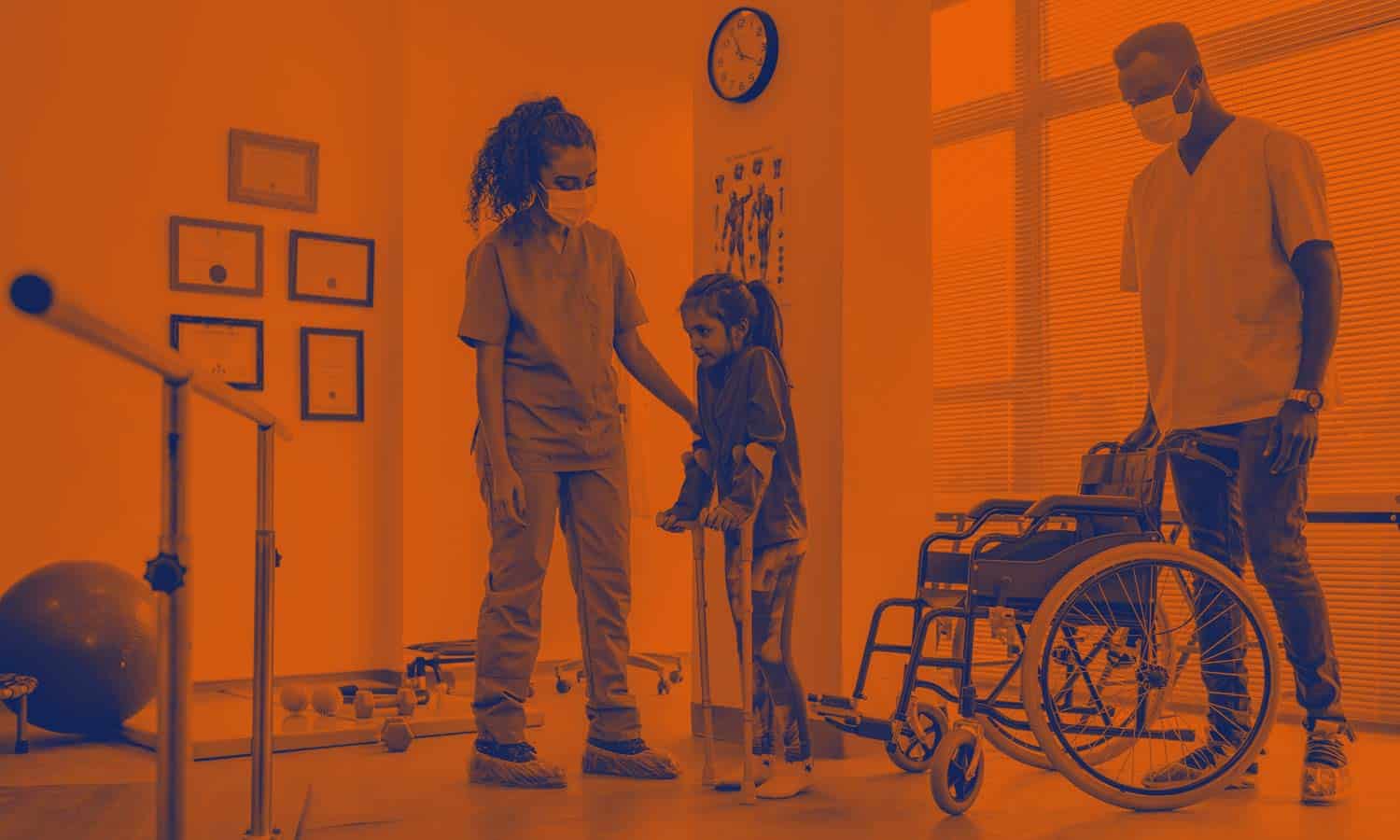Blog
Disability trends: a snapshot

Did you know that 1 in 6 people in Australia are affected by disability? That’s 4.4 million people. And within this group of people, around 1 in 3 have severe or profound disability – which means a person sometimes or always needs help with daily self-care, mobility or communication activities.
What is disability?
Disability is defined as any condition that restricts a person’s mental, physical, sensory or mobility functions. They can be temporary or permanent, visible or invisible, and can be present from birth or occur during a person’s lifetime.
Living with disability
Disabilities can be very different from person to person, so the level of support each individual needs throughout their life will vary. But there are some general trends we see:
Disability carers
Depending on a person’s level of disability ongoing support from a carer may be required.
Broadly speaking, carers provide support and help with daily activities such as preparing meals, bathing, dressing, moving around and taking medicine. Carers also provide vital emotional and social support to a person with disability.
A person may require full time care, while others may only need support intermittently. Some carers look after people who are mostly independent but just need extra help with tasks like banking, transport, shopping or housework.
People with disability are often cared for by a family member and/or support network, however care can also be provided by a registered care organisation.
The National Disability Insurance Scheme (NDIS)
The NDIS is a nationwide funding program set up to help propel Australians with disability to live full lives, pursue their lifestyle goals, be independent, fully engage in the workplace, and actively take part in the community.
Within the next five years, the NDIS will provide more than $22 billion in funding a year to an estimated 500,000 Australians who are living with permanent and significant disability. For many people, it will be the first time they receive the disability support they need.
The NDIS can provide all people with disability with key information and connections to services in their communities. This includes access to doctors, sporting clubs, support groups, libraries and schools, as well as information about what support is provided by each state and territory government.
Supporting Care Organisations
Carers are the backbone of disability support. Every day, they help protect the dignity, wellbeing and independence of people living with disability, assisting them to reach their full potential.
For care organisations, the NDIS clearly presents new significant opportunities and directions for the future of disability care. However, navigating the complexities of the program can be challenging. The progressive development of the NDIS is also presenting new considerations for care providers about how best to manage the new person-centred model approach to care to drive better outcomes over an individual’s lifetime. This model will be the focus of Scheme reforms over the coming year to deliver consistency and equity, continuing to enable participants to exercise choice and control over their lives.
These reforms – which will see the NDIS engage closely with people with disability, the sector and governments – also aim to ensure that access and planning decisions are as fair, simple and flexible as they can be. It will help future-proof the NDIS so that is remains affordable and sustainable, and that all Australians feel confident the Scheme will be there for them, if and when they need it over their lifetime. To read more about the new person-centred approach to care, read the NDIS’ Corporate Plan 2021-2025, download it here.
That’s where technology becomes each organisation’s most trusted ally. AlayaCare’s all-in-one platform equips disability care providers with the right tools to manage their client services under the NDIS.
AlayaCare’s NDIS Management Software
Whether accessed in the office or at the point of care, with AlayaCare, service providers can simplify their NDIS workflow, reduce administration time and overhead, monitor their operations and performance. Ultimately, our technology makes it easier to navigate the NDIS, so organisations have more time to focus on delivering outstanding care.
Some benefits of AlayaCare Cloud software include:
- Manage NDIS plans and outcomes
- Manage individual care and support plans
- Meet NDIS compliance requirements
- Monitor NDIS and other individualised funds
- Create and optimise individual client schedules
- Manage complex clinical documentation needs
- Track important tasks and visits
- Monitor medication administration
- Record and track risks
To learn more about how AlayaCare can support your business and help you navigate the NDIS, contact us today.




